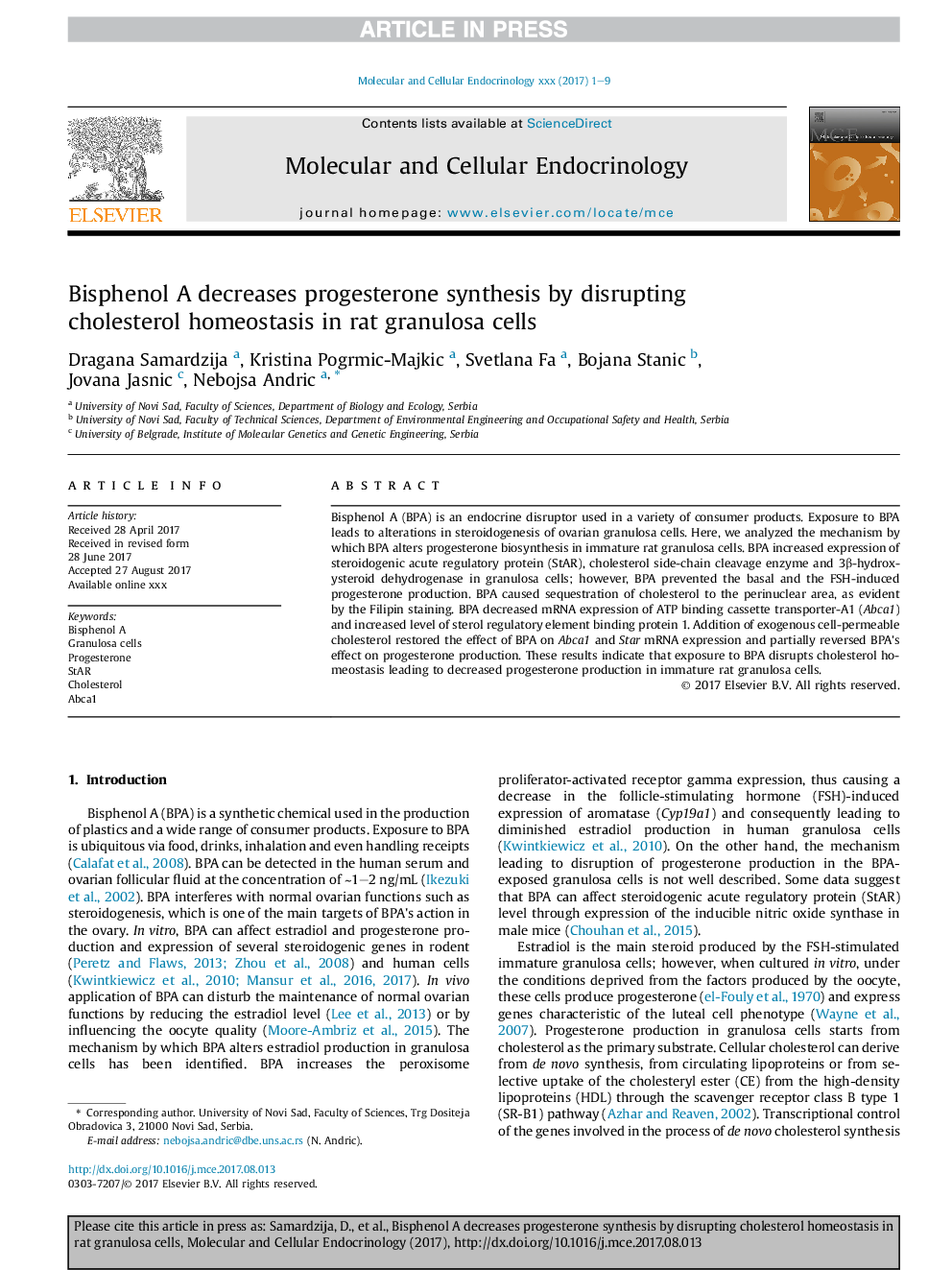| Article ID | Journal | Published Year | Pages | File Type |
|---|---|---|---|---|
| 8476569 | Molecular and Cellular Endocrinology | 2018 | 9 Pages |
Abstract
Bisphenol A (BPA) is an endocrine disruptor used in a variety of consumer products. Exposure to BPA leads to alterations in steroidogenesis of ovarian granulosa cells. Here, we analyzed the mechanism by which BPA alters progesterone biosynthesis in immature rat granulosa cells. BPA increased expression of steroidogenic acute regulatory protein (StAR), cholesterol side-chain cleavage enzyme and 3β-hydroxysteroid dehydrogenase in granulosa cells; however, BPA prevented the basal and the FSH-induced progesterone production. BPA caused sequestration of cholesterol to the perinuclear area, as evident by the Filipin staining. BPA decreased mRNA expression of ATP binding cassette transporter-A1 (Abca1) and increased level of sterol regulatory element binding protein 1. Addition of exogenous cell-permeable cholesterol restored the effect of BPA on Abca1 and Star mRNA expression and partially reversed BPA's effect on progesterone production. These results indicate that exposure to BPA disrupts cholesterol homeostasis leading to decreased progesterone production in immature rat granulosa cells.
Related Topics
Life Sciences
Biochemistry, Genetics and Molecular Biology
Cell Biology
Authors
Dragana Samardzija, Kristina Pogrmic-Majkic, Svetlana Fa, Bojana Stanic, Jovana Jasnic, Nebojsa Andric,
